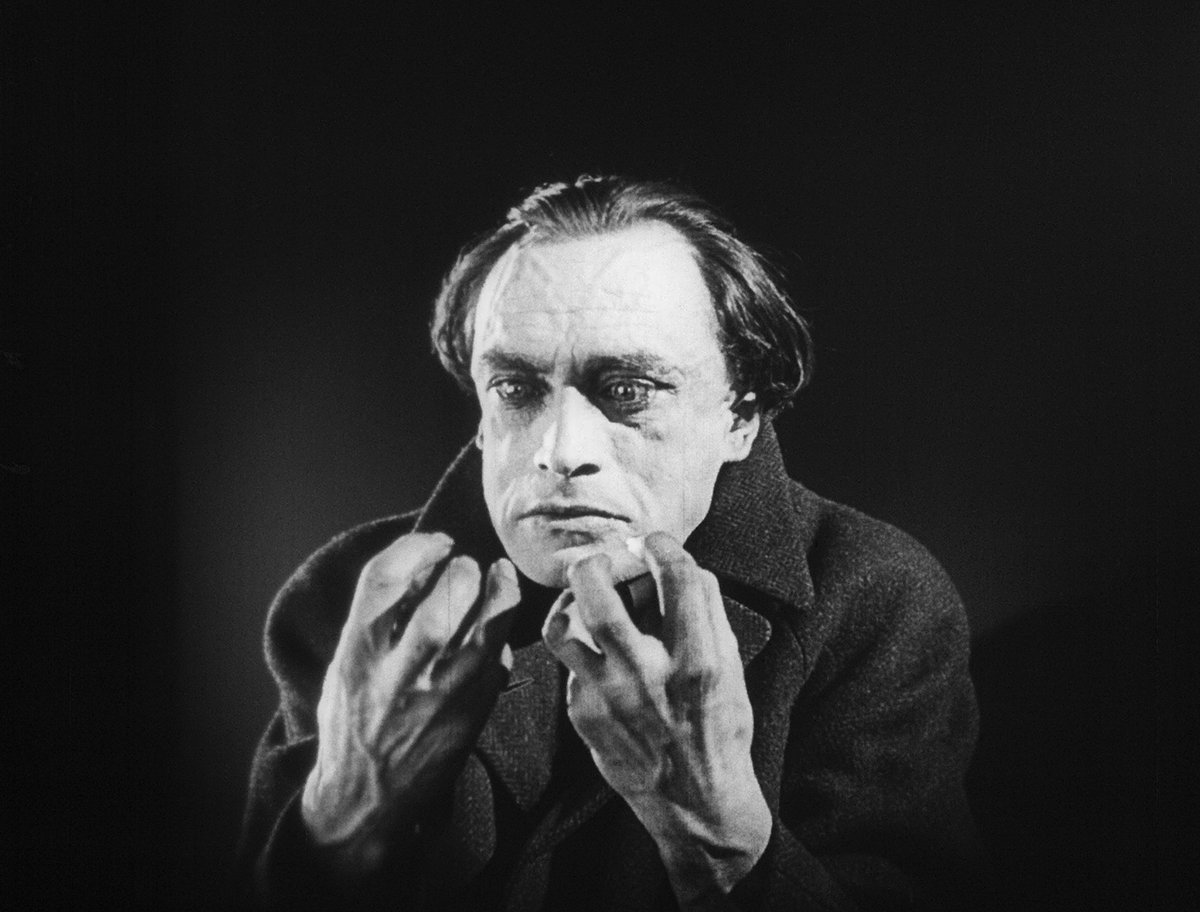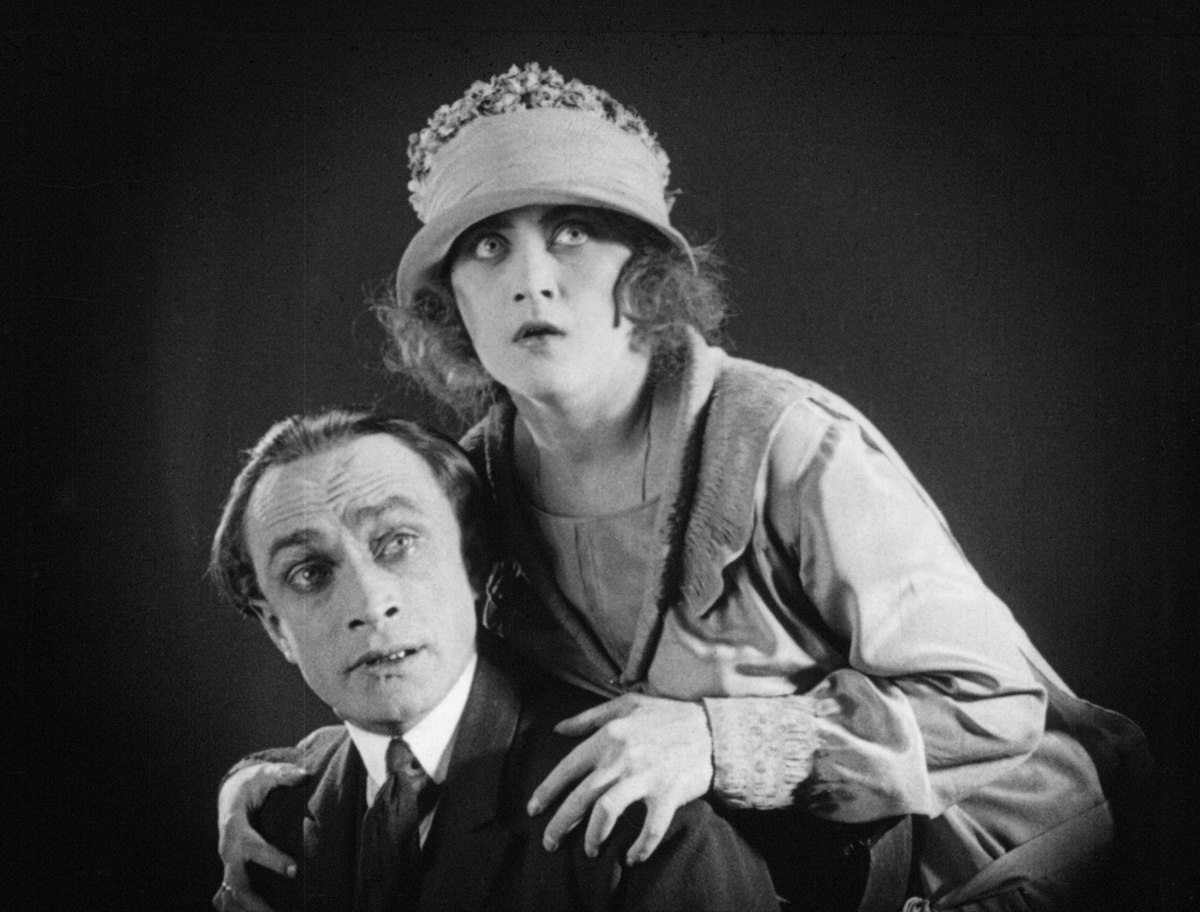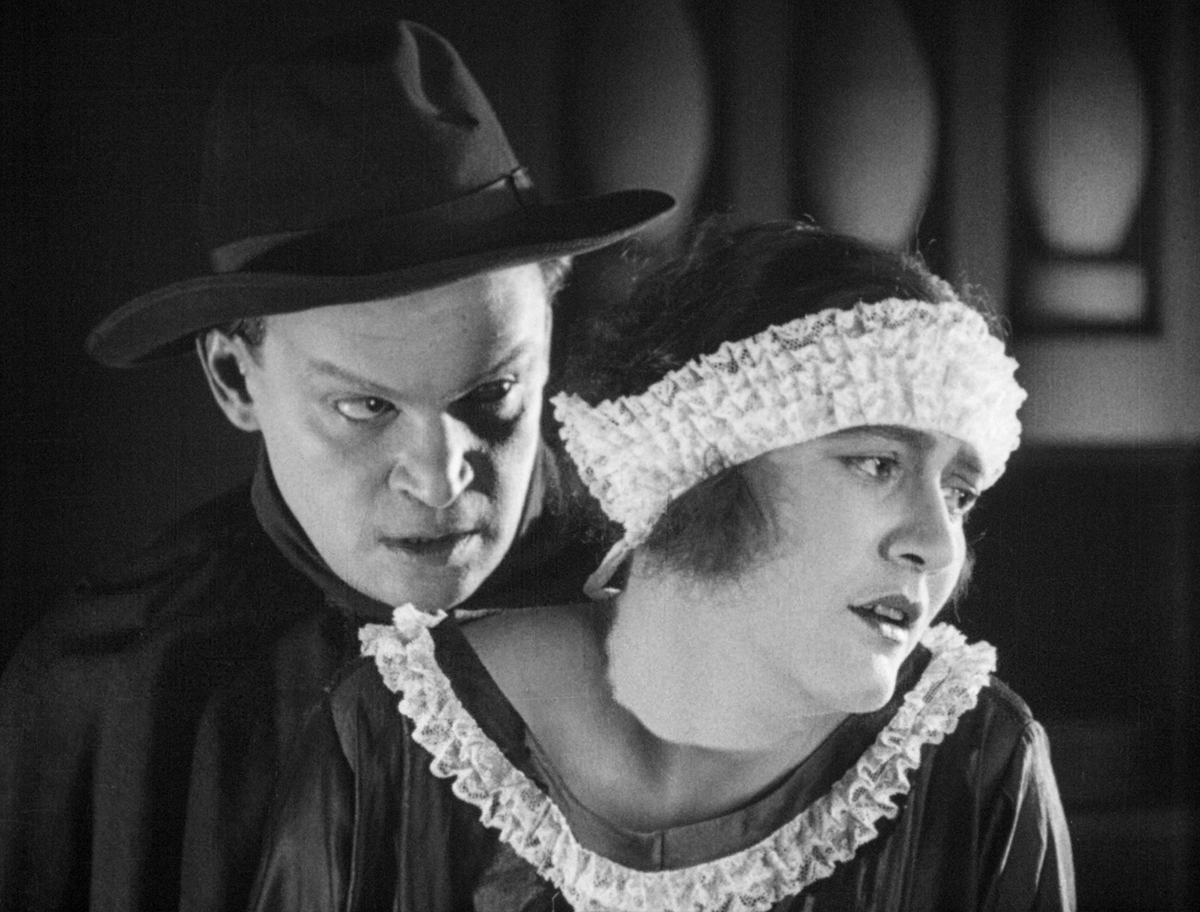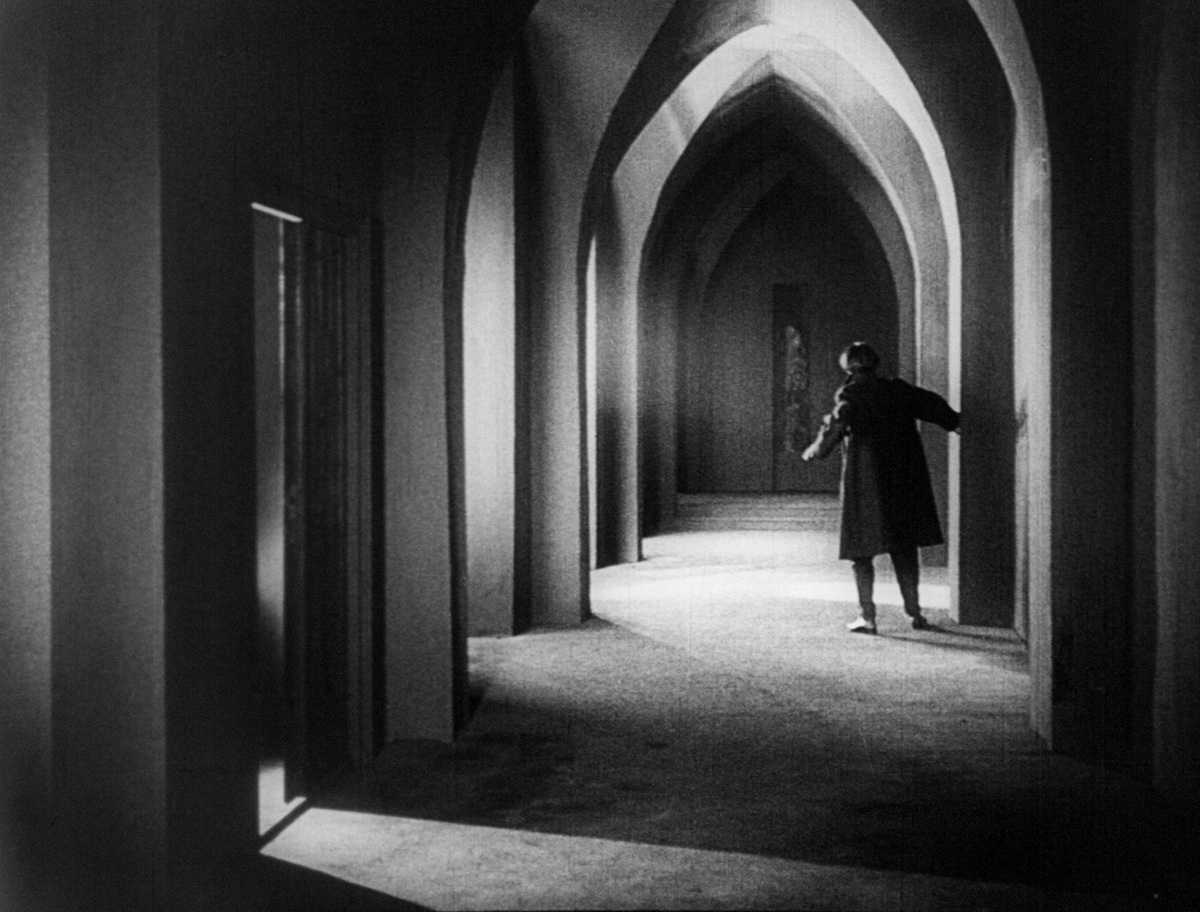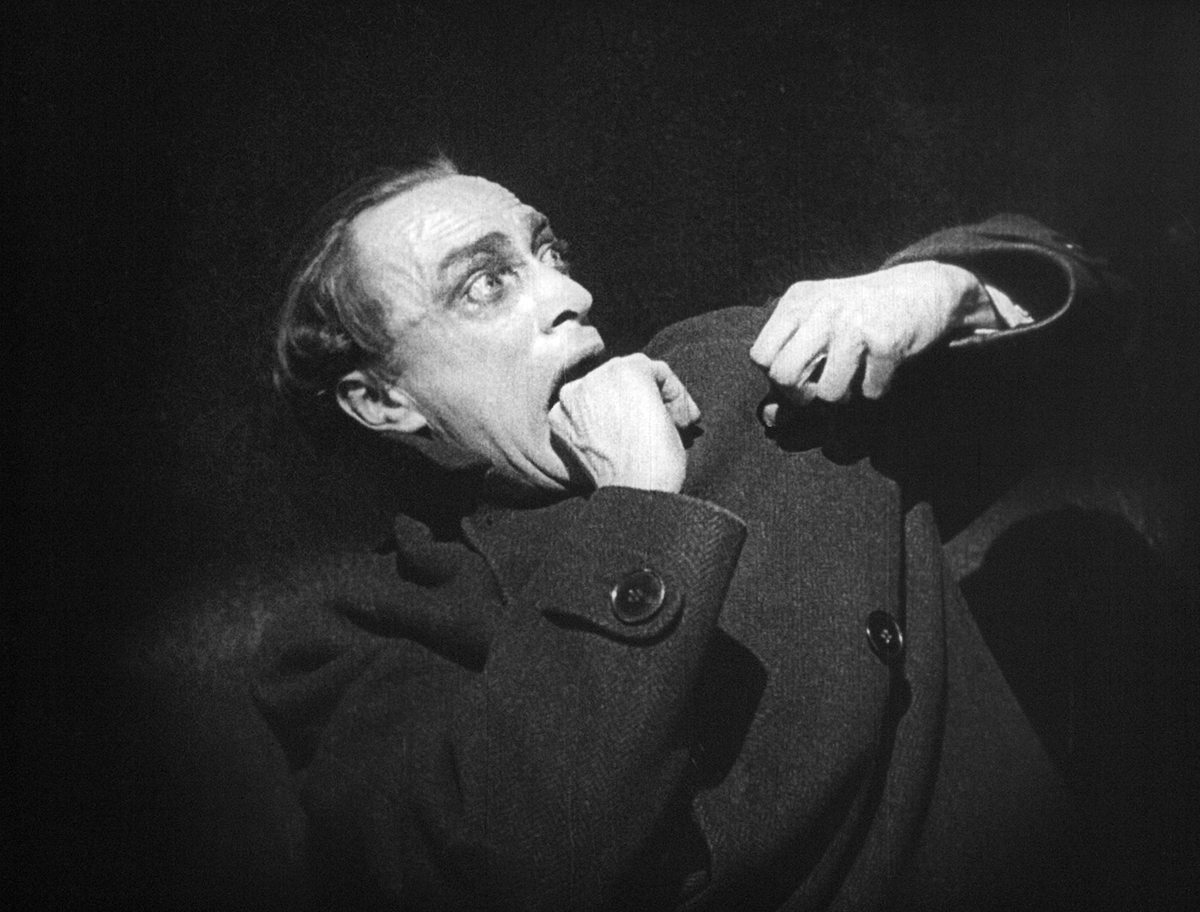Orlac's Hands
Orlac's Hands
Austria 1924 | 95 min. | HD-s/w-restored version
Orlac's Hands is one of the classics of the horror film, half art film, half splatter film: a pianist falls into the clutches of a cunning criminal who sends the psychologically unstable artist on a horror trip and makes him become the alleged murderer of his father. ORLAC'S HANDS features a top-class cast with the two silent film icons Conrad Veidt and Fritz Kortner as his sinister antagonist and marks one of the high points of expressionist silent film.
The original for Orlac's Hands was written by the French fantasy author Maurice Renard. His book was published in 1920 and saw four further film adaptations: in 1935 under the title Mad Love with Peter Lorre, three more in the 1960s and 90s. Hardly any of these remakes come close to the original from 1924.
Concert pianist Paul Orlac loses both hands in a train accident. To enable him to continue playing the piano, he is transplanted with the limbs of Vasseur, a robbery murderer who has just been executed. The operation and healing go smoothly, but when Orlac learns that he is wearing "murderer's hands", he is tormented by the idea that he is under the influence of the robbery murderer who has just been executed. Orlac is in danger of going insane when his father is found dead - stabbed to death with a dagger bearing Vasseur's fingerprints. Only when the murder is solved as the act of a criminal who is as responsible for Orlac's father's murder as for the act for which Vasseur was executed is Orlac redeemed.
The new music, written for string ensemble, two pianos and sampler, explores the psychological development of the protagonist, exemplified by his piano, which is distributed among three instruments: in addition to the classical piano, there is a prepared piano, a 'dark shadow piano', as it were, and an electronic sampler. The electronic sound extension is based on percussive sounds from the interior of the piano, in which the protagonist's images of terror and feelings of fear resonate. Johannes Kalitzke works quite traditionally with leitmotifs in his film music. Orlac, for example, is portrayed by paraphrasing a nocturne by Chopin that is already anchored in the film; depending on the dramaturgical situation, this music is constantly transformed like a continuous "idee fixe". Paul Orlac is an early example of a traumatised "undead" of his own mediatised success; Johannes Kalitzke has used the samples to get inside Paul Orlac's head and dark rooms. With his music, he not only brings today's audience closer to the fantastic cinematic work of Robert Wiene, but also allows them to experience the suggestiveness of silent film as an art form that is located on the fine line between dream and waking consciousness.
ORLAC'S HANDS
Film music for string ensemble, 2 pianos and sampler
by Johannes Kalitzke (2017)
Besetzung:
Strings (5.4.4.3.2), 2 Grand piano, 1 Keyboard (Sampler)
A work commissioned by ZDF/ARTE and the Stuttgart Chamber Orchestra.
The fact that the film, which was highly praised at the time of its creation, was predominantly regarded after 1945 as a late expressionist afterthought by Caligari director Robert Wiene has to do with the fact that the film was insufficiently preserved for a long time. In 1995, a 35 mm print with original German intertitles was discovered in the Belgrade Film Archive, which provided the basis for a comprehensive reconstruction. Since the censorship card has also been preserved, which provides information about the exact wording of the original version, it was possible to produce a version that is consistent and integral in terms of content. Compared to the original version, about 8 minutes are still missing, which, according to the current state of knowledge and the comprehensive review of all known Orlac copies in European archives, must be considered lost.
Robert Wiene (1873-1938) came to film via the theatre after studying law. He went down in film history as the director of Das Cabinet des Dr. Caligari (1919) and directed a series of high-profile films until 1926, such as Genuine (1920), Raskolnikow (1923), Orlac's Hands (1924) and finally the film adaptation of the Strauss opera Der Rosenkavalier, which premiered at the Semperoper in January 1926. In 1930 Wiene made his first sound film Der Andere (The Other), based on a stage play by Paul Lindau and starring Fritz Kortner. Robert Wiene had to emigrate during the Nazi era. After a stopover in London he went to Paris where he tried unsuccessfully to get a sound film remake of The Cabinet of Dr. Caligari together with Jean Cocteau. It would be 1938 before he was back in the director's chair for the spy story Ultimatum. On 17 July 1938, shortly before the end of filming (which was subsequently completed by Robert Siodmak), Robert Wiene died in Paris at the age of 65.
Johannes Kalitzke (*1959)
studied piano, conducting and composition at the Musikhochschule in Cologne, followed by studies in electronic music. He is considered an excellent interpreter of classical and modern music and has regular guest conducting engagements with the leading ensembles, symphony orchestras and opera houses in the field of contemporary music. However, the main focus of his musical work is composition, especially for opera - most recently commissioned by the Heidelberg Opera PYM - and chamber ensemble. His orchestral film music for DIE WEBER (D 1927) is currently the most performed silent film music internationally, including by ensemble modern; it was co-produced by ZDF/ARTE in July 2013. This was followed by silent film music: SCHATTEN (D 1923), premiered at the Tagen für neue Kammermusik 2016, Witten, as a co-production ZDF/ARTE and WDR, ORLACS HÄNDE (A 1924), premiered in Salzburg (aspekte) 2018 and broadcast on ARTE in 2019. His most recent work with film, the church film opera JEANNE D' ARC (F 1928), premiered at the Carinthian Summer 2020 on 20.08.20.
Credits
- Direction:
Robert Wiene - Screenplay:
Ludwig Nerz - Camera:
Viktor Gluck - Actor's:
Conrad Veidt (Paul Orlac, Pianist), Alexandra Sorina (Yvonne Orlac, seine Frau), Fritz Kortner (Nera) u.a. - Film restoration (2019):
Filmarchive Austria - Score music:
Johannes Kalitzke (2019) - Redaktion:
Nina Goslar - Production:
Thomas Schmölz, 2eleven music film

